In 2003, Joseph Bishi founded a cyber café in Murambinda, a rural area of Zimbabwe with limited Internet access. Armed with dial-up technology, the café became a cornerstone for digital empowerment in the community.
The café provided essential Internet services, printing solutions, and computer literacy training. Additionally, it offered hardware supplies and repair services, ensuring schools and individuals had access to functional technology. The cyber café was more than a business—it was a lifeline, laying the groundwork for Murambinda’s future as a hub of digital innovation.
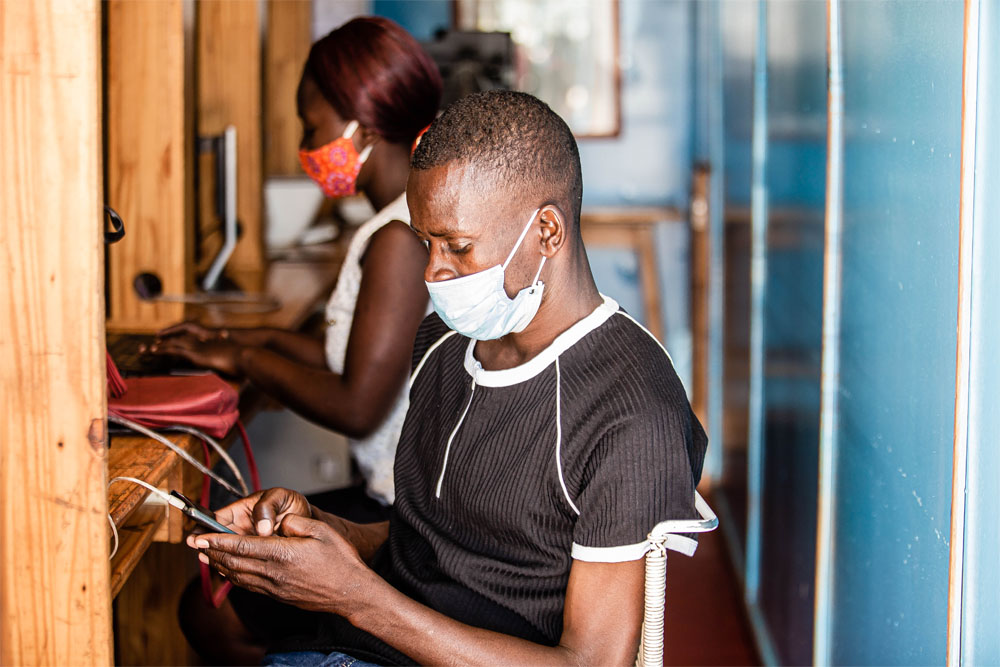
The Transition to Community Networks
By 2018, with support from the Internet Society, Bishi expanded the cyber café into a community network. This transformative project included transitioning from dial-up to fiber-based Internet technology, broadening coverage to schools, healthcare facilities, and homes within a 40-kilometer radius, and training local residents to maintain and manage the network, fostering a sense of ownership and ensuring sustainability. The network’s impact extended beyond providing Internet access; it became a tool for education, healthcare, and economic development.
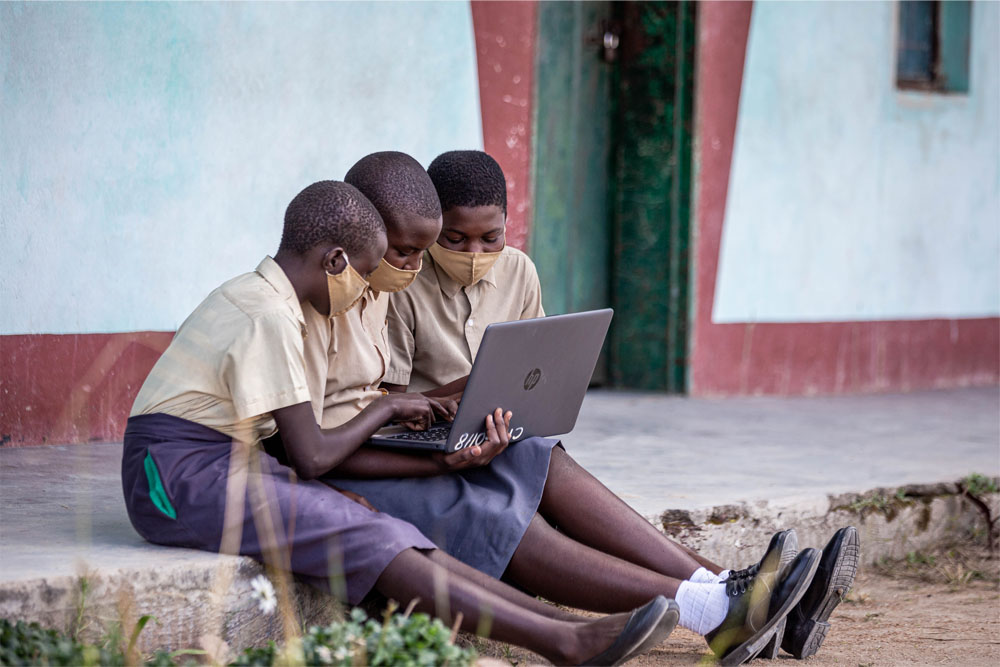
Efforts to expand the model to other regions brought challenges. In Chimanimani, Bishi identified the potential for a community network to support disaster-stricken communities by providing essential connectivity. But, progress has been slow due to the complexities of securing partnerships and aligning stakeholder support.
Despite these challenges, Bishi continues to engage with key decision-makers to advocate for the project and demonstrate the broader value of community networks in addressing local needs.
When COVID-19 forced much of the world online, Murambinda’s community network became a digital lifeline. With schools and businesses closed, reliable Internet access was essential for remote learning and work.
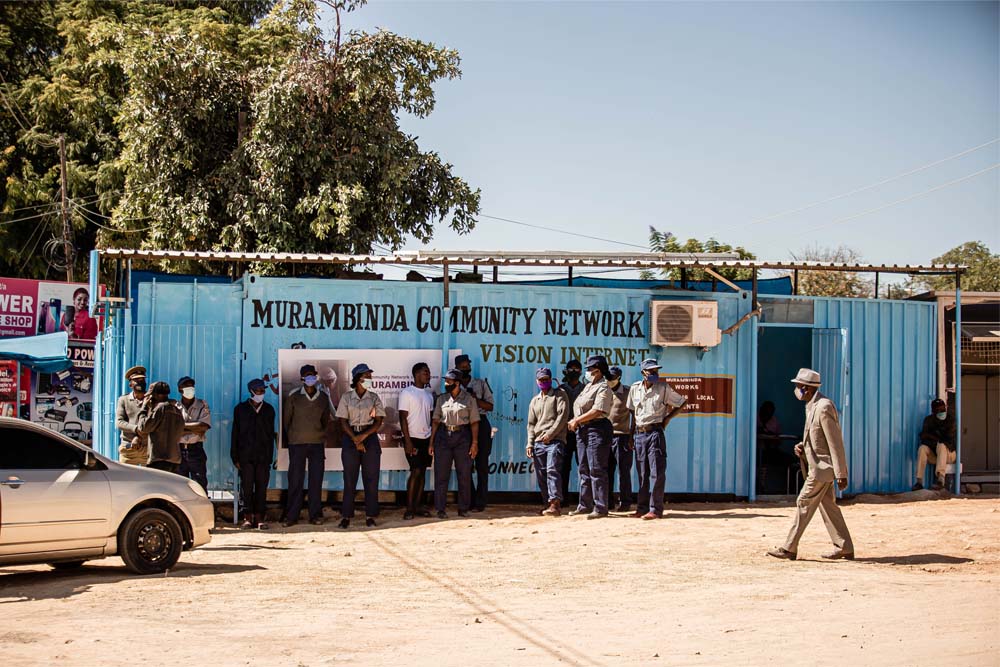
To meet the growing demand, Bishi introduced community Wi-Fi hotspots across residential areas, making connectivity affordable and accessible. This initiative not only kept the community connected during the pandemic, but also demonstrated the critical role of community networks in bridging the digital divide.
One of the network’s groundbreaking advancements was the installation of solar-powered masts. These innovations addressed frequent power outages in Murambinda by ensuring consistent Internet connectivity. The solar-powered system provided uninterrupted Internet access even during power cuts, supported students with stable connections for online classes, and enabled businesses to operate online and reach broader markets. This sustainable solution underscored the importance of renewable energy in driving digital inclusion.
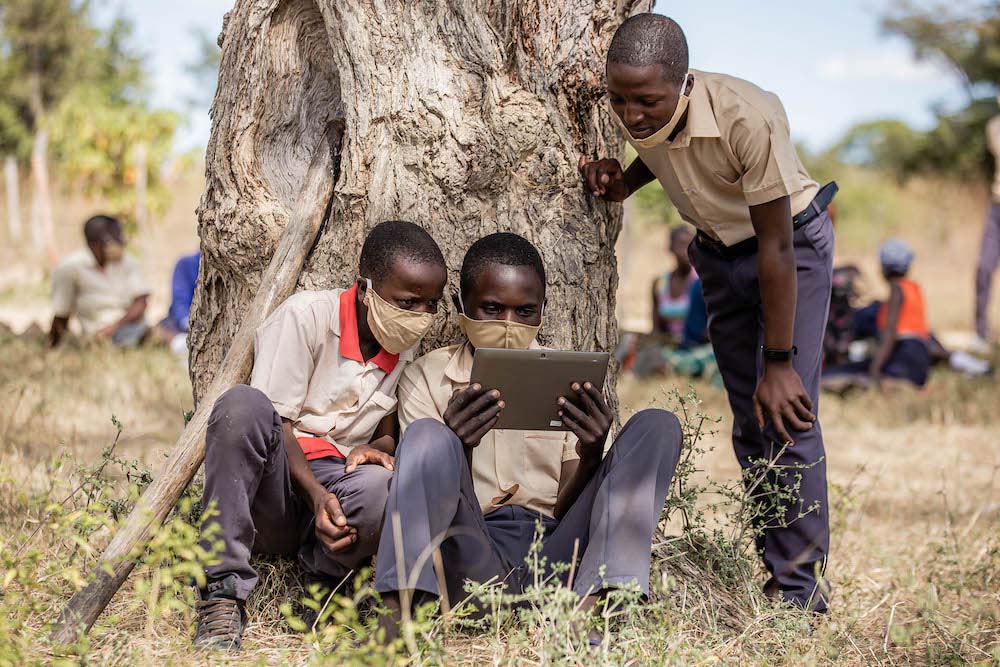
Kyleview Community Network: Women-Led Innovation
Bishi and his team also support the Kyleview Community Network in Masvingo: a licensed, women-led network operating near the Great Zimbabwe ruins—an iconic site from which the country derives its name.
Made possible through funding from the Internet Society, the Kyleview network not only connects local communities, but also serves as a hub for tourism, economic empowerment, and education.
“I strongly believe this is going to be one of the most impactful community networks,” Bishi shares, highlighting the leadership of young women and ongoing collaborations with local universities to drive research and innovation.
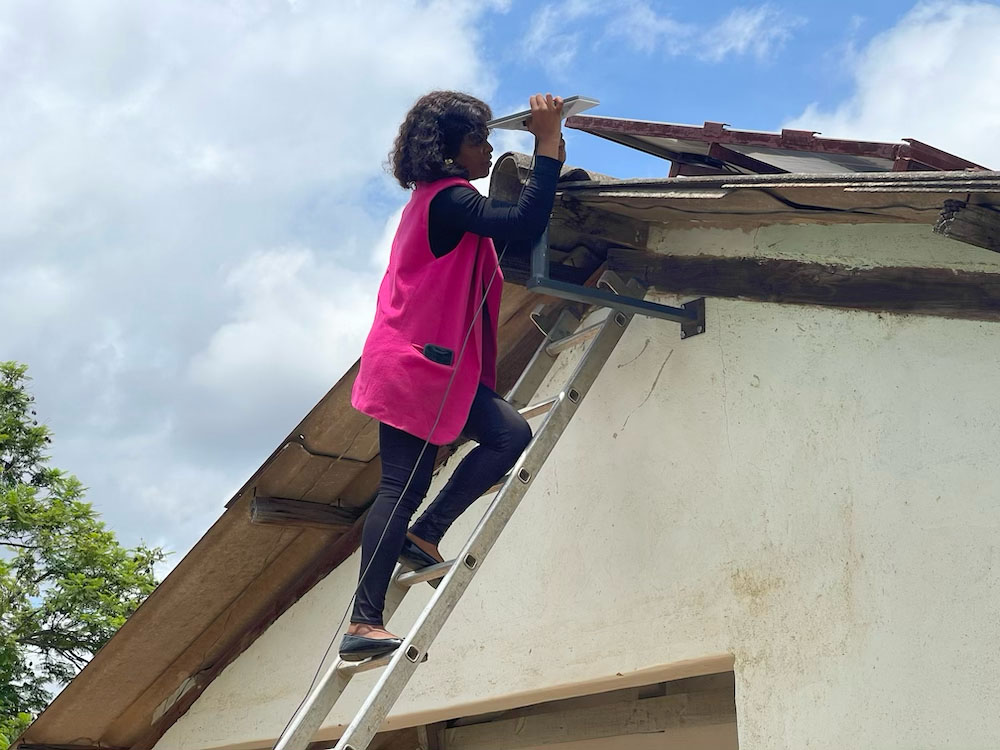
Shaping the Future Through Advocacy
Bishi’s influence extends beyond Zimbabwe through regional advocacy. His work with the Communications Regulators’ Association of Southern Africa (CRASA) has facilitated knowledge-sharing on the role of community networks as alternative pathways to digital inclusion. These engagements are critical in shaping policies that recognize community networks as key players in addressing the digital divide across Southern Africa.
The transformative impact of community networks is also evident in Bishi’s collaboration with the Ministry of Information Commiunication Technology (ICT). The partnership’s active Memorandum of Understanding accelerates digital inclusion through community networks, bolstered by efforts to integrate these networks into university curricula.

By influencing the education of graduates, Bishi seeks to ensure future professionals understand and innovate within the context of community networks, strengthening their foundation and sustainability.
Bishi’s participation in the our Mid Career Fellowship (MCF) program was transformative in shaping his advocacy strategies.
MCF was a wonderful opportunity that allowed me to establish key relationships with government stakeholders and solidify our active Memorandum of Understanding with the Ministry of ICT. This has been crucial in accelerating digital inclusion through community networks. The fellowship also inspired efforts to engage universities, ensuring graduates are equipped to innovate and think within the context of community networks, which strengthens their foundation and sustainability.”
Bishi’s journey is a blueprint for harnessing the power of technology to transform lives. From a single cyber café to a network that connects thousands, his work highlights the potential of community-driven solutions in bridging the digital divide.

